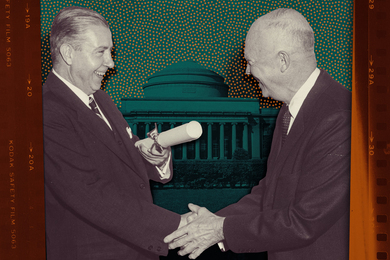Frank Wilczek, the J. Robert Oppenheimer Professor in the School of Natural Sciences at the Institute for Advanced Study, has been appointed the first Herman Feshbach (1942) Professor of Physics. Professor Wilczek will join the MIT physics faculty in September 2000.
Professor Wilczek is one of the world's leading theoretical physicists. His earliest work, done with David Gross at Princeton, led to the discovery of asymptotic freedom, which describes the interactions of quarks, the constituents of protons and neutrons. Asymptotic freedom means that quarks interact more weakly the closer they are together. This concept makes it possible to understand the behavior of matter under extreme conditions, such as occurred in the earliest moments of the Big Bang. Professor Wilczek has also made important contributions to condensed-matter physics and cosmology.
A native of Mineola, NY, Professor Wilczek received the BS in 1970 from the University of Chicago and the PhD in 1973 from PrincetonUniversity. He has been the recipient of numerous honors and awards, including a John and Catherine D. MacArthur Foundation fellowship and the J.J. Sakurai prize of the American Physical Society.
The Feshbach chair was created to honor the Institute Professor emeritus, who, like Professor Wilczek, is a distinguished theoretical physicist. Professor Feshbach has been a member of the physics faculty since 1941 and served as department head from 1973-84.
A version of this article appeared in MIT Tech Talk on December 8, 1999.






